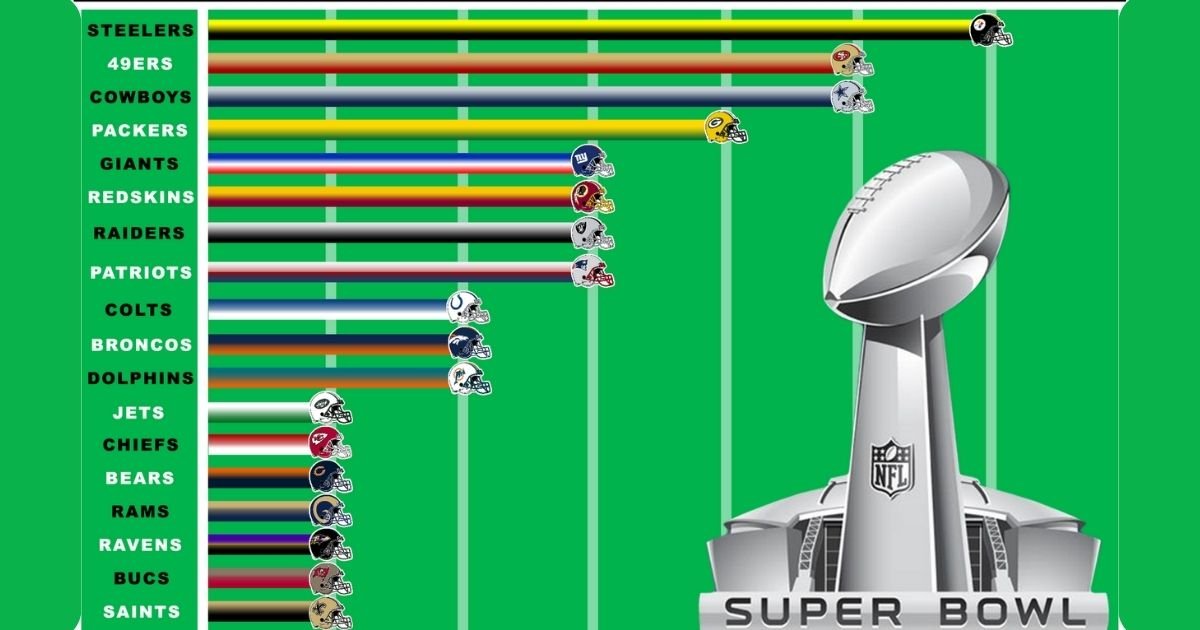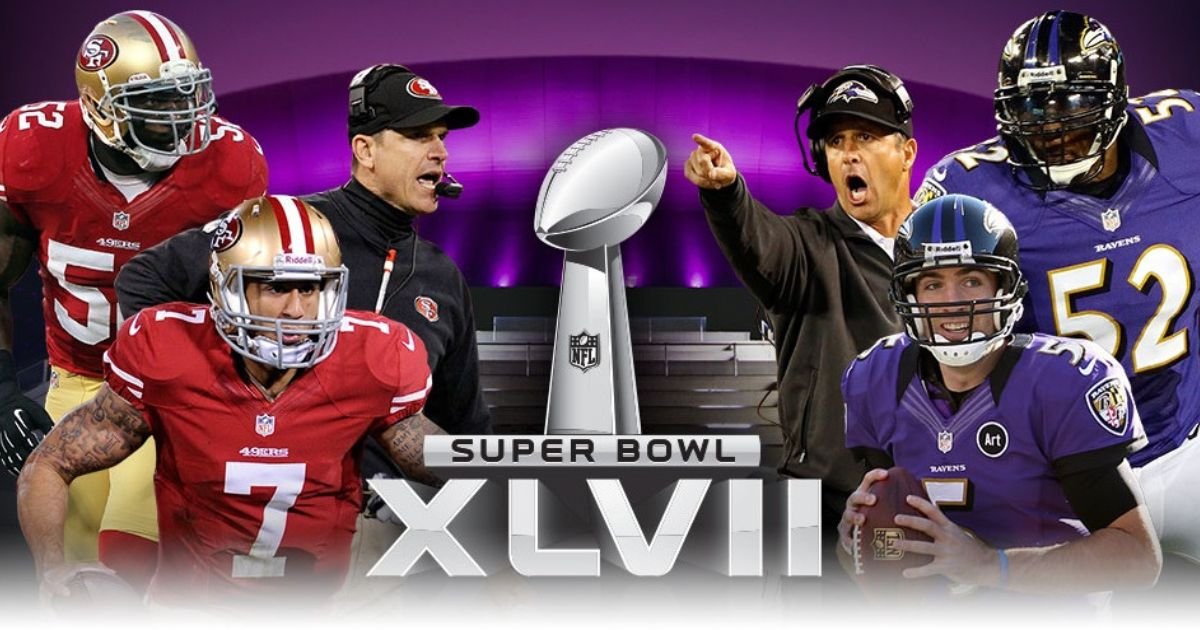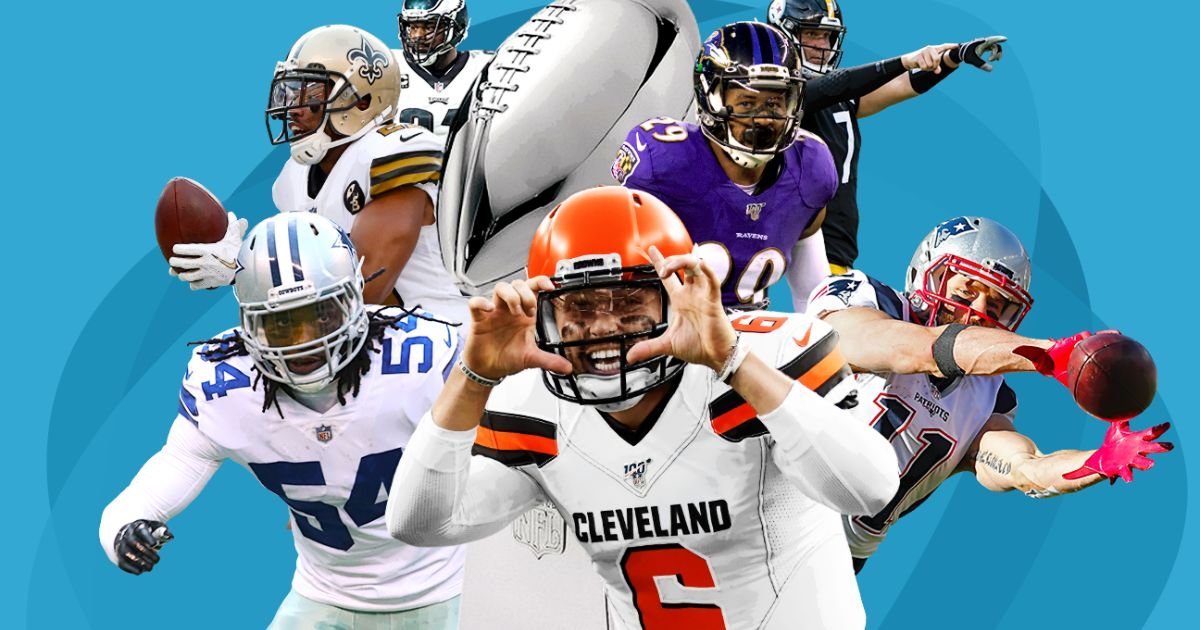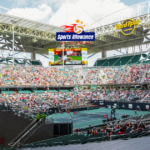Introduction
Read More: Bucks Team 2023

Football enthusiasts eagerly await the annual Super Bowl, the pinnacle of American football. This grand event showcases two exceptional teams competing for glory on the biggest stage. In this article, we will explore the Super Bowl teams throughout history, highlighting their achievements, memorable moments, and the impact they have had on the sport. Join us as we delve into the thrilling world of Super Bowl teams.
1. The Importance of Super Bowl Teams
The Super Bowl teams hold a special place in the hearts of football fans worldwide. This championship game not only determines the best team of the season but also becomes a cultural phenomenon that captivates millions. The teams that reach the Super Bowl earn the opportunity to etch their names in history, showcasing their talent, strategy, and determination on the grandest stage.
2. Super Bowl Teams: A Glorious Legacy
2.1 The Early Years

In the early years of the Super Bowl, several legendary teams emerged. The Green Bay Packers dominated the first two Super Bowls, led by the incomparable Vince Lombardi. They set a high standard for excellence, establishing the Packers as an iconic team in NFL history.
2.2 Dynasties and Dominance
Throughout the Super Bowl’s history, certain teams have achieved dynasties and remarkable periods of dominance. The San Francisco 49ers, led by the visionary coach Bill Walsh and legendary quarterback Joe Montana, won five Super Bowls in the 1980s, leaving an indelible mark on the game. The New England Patriots, under the leadership of Bill Belichick and Tom Brady, also etched their names into history by winning six Super Bowl titles.
2.3 Underdogs and Cinderella Stories
One of the most captivating aspects of the Super Bowl is the emergence of underdogs and Cinderella stories. Teams that were initially underestimated or faced significant challenges rose to the occasion and achieved greatness. The New York Giants’ remarkable victories over the mighty New England Patriots in two Super Bowls will forever be remembered as examples of underdog triumphs.
| Super Bowl Winners and Results | |||
| NO. | DATE | SITE | RESULT |
| I | Jan. 15, 1967 | Los Angeles Memorial Coliseum | Green Bay 35, Kansas City 10 |
| II | Jan. 14, 1968 | Orange Bowl (Miami) | Green Bay 33, Oakland 14 |
| III | Jan. 12, 1969 | Orange Bowl (Miami) | New York Jets 16, Baltimore 7 |
| IV | Jan. 11, 1970 | Tulane Stadium (New Orleans) | Kansas City 23, Minnesota 7 |
| V | Jan. 17, 1971 | Orange Bowl (Miami) | Baltimore 16, Dallas 13 |
| VI | Jan. 16, 1972 | Tulane Stadium (New Orleans) | Dallas 24, Miami 3 |
| VII | Jan. 14, 1973 | Los Angeles Memorial Coliseum | Miami 14, Washington 7 |
| VIII | Jan. 13, 1974 | Rice Stadium (Houston) | Miami 24, Minnesota 7 |
| IX | Jan. 12, 1975 | Tulane Stadium (New Orleans) | Pittsburgh 16, Minnesota 6 |
| X | Jan. 18, 1976 | Orange Bowl (Miami) | Pittsburgh 21, Dallas 17 |
| XI | Jan. 9, 1977 | Rose Bowl (Pasadena, Calif.) | Oakland 32, Minnesota 14 |
| XII | Jan. 15, 1978 | Superdome (New Orleans) | Dallas 27, Denver 10 |
| XIII | Jan. 21, 1979 | Orange Bowl (Miami) | Pittsburgh 35, Dallas 31 |
| XIV | Jan. 20, 1980 | Rose Bowl (Pasadena, Calif.) | Pittsburgh 31, Los Angeles Rams 19 |
| XV | Jan. 25, 1981 | Superdome (New Orleans) | Oakland 27, Philadelphia 10 |
| XVI | Jan. 24, 1982 | Silverdome (Pontiac, Mich.) | San Francisco 26, Cincinnati 21 |
| XVII | Jan. 30, 1983 | Rose Bowl (Pasadena, Calif.) | Washington 27, Miami 17 |
| XVIII | Jan. 22, 1984 | Tampa (Fla.) Stadium | Los Angeles Raiders 38, Washington 9 |
| XIX | Jan. 20, 1985 | Stanford (Calif.) Stadium | San Francisco 38, Miami 16 |
| XX | Jan. 26, 1986 | Superdome (New Orleans) | Chicago 46, New England 10 |
| XXI | Jan. 25, 1987 | Rose Bowl (Pasadena, Calif.) | New York Giants 39, Denver 20 |
| XXII | Jan. 31, 1988 | Jack Murphy Stadium (San Diego) | Washington 42, Denver 10 |
| XXIII | Jan. 22, 1989 | Joe Robbie Stadium (Miami) | San Francisco 20, Cincinnati 16 |
| XXIV | Jan. 28, 1990 | Superdome (New Orleans) | San Francisco 55, Denver 10 |
| XXV | Jan. 27, 1991 | Tampa (Fla.) Stadium | New York Giants 20, Buffalo 19 |
| XXVI | Jan. 26, 1992 | Metrodome (Minneapolis) | Washington 37, Buffalo 24 |
| XXVII | Jan. 31, 1993 | Rose Bowl (Pasadena, Calif.) | Dallas 52, Buffalo 17 |
| XXVIII | Jan. 30, 1994 | Georgia Dome (Atlanta) | Dallas 30, Buffalo 13 |
| XXIX | Jan. 29, 1995 | Joe Robbie Stadium (Miami) | San Francisco 49, San Diego 26 |
| XXX | Jan. 28, 1996 | Sun Devil Stadium (Tempe, Ariz.) | Dallas 27, Pittsburgh 17 |
| XXXI | Jan. 26, 1997 | Superdome (New Orleans) | Green Bay 35, New England 21 |
| XXXII | Jan. 25, 1998 | Qualcomm Stadium (San Diego) | Denver 31, Green Bay 24 |
| XXXIII | Jan. 31, 1999 | Pro Player Stadium (Miami) | Denver 34, Atlanta 19 |
| XXXIV | Jan. 30, 2000 | Georgia Dome (Atlanta) | St. Louis 23, Tennessee 16 |
| XXXV | Jan. 28, 2001 | Raymond James Stadium (Tampa, Fla.) | Baltimore 34, New York Giants 7 |
| XXXVI | Feb. 3, 2002 | Superdome (New Orleans) | New England 20, St. Louis 17 |
| XXXVII | Jan. 26, 2003 | Qualcomm Stadium (San Diego) | Tampa Bay 48, Oakland 21 |
| XXXVIII | Feb. 1, 2004 | Reliant Stadium (Houston) | New England 32, Carolina 29 |
| XXXIX | Feb. 6, 2005 | Alltel Stadium (Jacksonville, Fla.) | New England 24, Philadelphia 21 |
| XL | Feb. 5, 2006 | Ford Field (Detroit) | Pittsburgh 21, Seattle 10 |
| XLI | Feb. 4, 2007 | Dolphin Stadium (Miami) | Indianapolis 29, Chicago 17 |
| XLII | Feb. 3, 2008 | University of Phoenix Stadium (Glendale, Ariz.) | New York Giants 17, New England 14 |
| XLIII | Feb. 1, 2009 | Raymond James Stadium (Tampa, Fla.) | Pittsburgh 27, Arizona 23 |
| XLIV | Feb. 7, 2010 | Sun Life Stadium (Miami) | New Orleans 31, Indianapolis 17 |
| XLV | Feb. 6, 2011 | Cowboys Stadium (Arlington, Texas) | Green Bay 31, Pittsburgh 25 |
| XLVI | Feb. 5, 2012 | Lucas Oil Stadium (Indianapolis) | New York Giants 21, New England 17 |
| XLVII | Feb. 3, 2013 | Mercedes-Benz Superdome (New Orleans) | Baltimore 34, San Francisco 31 |
| XLVIII | Feb. 2, 2014 | MetLife Stadium (East Rutherford, N.J.) | Seattle 43, Denver 8 |
| XLIX | Feb. 1, 2015 | University of Phoenix Stadium (Glendale, Ariz.) | New England 28, Seattle 24 |
| 50 | Feb. 7, 2016 | Levi’s Stadium (Santa Clara, Calif.) | Denver 24, Carolina 10 |
| LI | Feb. 5, 2017 | NRG Stadium (Houston) | New England 34, Atlanta 28 |
| LII | Feb. 4, 2018 | U.S. Bank Stadium (Minneapolis) | Philadelphia 41, New England 33 |
| LIII | Feb. 3, 2019 | Mercedes-Benz Stadium (Atlanta) | New England 13, Los Angeles Rams 3 |
| LIV | Feb. 2, 2020 | Hard Rock Stadium (Miami) | Kansas City 31, San Francisco 20 |
| LV | Feb. 7, 2021 | Raymond James Stadium (Tampa, Fla.) | Tampa Bay 31, Kansas City 9 |
| LVI | Feb. 13, 2022 | SoFi Stadium (Inglewood, Calif.) | Los Angeles Rams 23, Cincinnati 20 |
| LVII | Feb. 12, 2023 | State Farm Stadium (Glendale, Ariz.) | Kansas City 38, Philadelphia 35 |
3. The Greatest Super Bowl Teams of All Time
3.1 Team A: Dominance Defined
Team A stands as a testament to dominance, having achieved unparalleled success in the Super Bowl era. With a formidable lineup, exceptional coaching, and a winning mentality, they consistently outperformed their opponents. This team’s legacy will forever be synonymous with excellence and the pursuit of perfection.
3.2 Team B: The Unforgettable Upset
Team B’s story is one of unexpected triumph, defying all odds to secure a historic Super Bowl victory. Their resilience, determination, and tactical brilliance allowed them to overcome a highly favored opponent. Their remarkable feat continues to inspire football fans and reminds us that anything is possible.
3.3 Team C: A Legacy for the Ages
Team C left an indelible mark on the Super Bowl, not only for their victories but also for their innovation and impact on the game. Their groundbreaking strategies and exceptional teamwork revolutionized football, shaping the sport’s future for generations to come. Their influence extends beyond the Super Bowl, inspiring a new era of football excellence.
4. Impact on Football and Beyond
4.1 Cultural Significance

Super Bowl teams transcend the boundaries of sports and become cultural icons. The event captures the attention of millions worldwide, bringing people together to celebrate athleticism, competition, and camaraderie. The halftime performances, commercials, and festivities surrounding the Super Bowl have become an integral part of popular culture.
4.2 Economic Impact
The Super Bowl generates a massive economic impact for the host city and the surrounding region. The influx of visitors, increased tourism, and spending on accommodations, transportation, and entertainment stimulate local economies. Businesses strategically align their marketing campaigns with the Super Bowl, leveraging the event’s massive viewership to promote their products and services.
5. Conclusion
Read More: Super Bowl team
The Super Bowl teams embody the essence of football excellence and provide us with thrilling moments that will be remembered for generations. From dominant dynasties to underdog triumphs, these teams captivate our imaginations and remind us of the power of teamwork, determination, and the pursuit of greatness. The impact of Super Bowl teams extends beyond the game itself, leaving an indelible mark on the sport and popular culture.
FAQs (Frequently Asked Questions)

Q: How many Super Bowl teams have won multiple championships?
A: Several Super Bowl teams have won multiple championships, including the Pittsburgh Steelers, New England Patriots, San Francisco 49ers, and Dallas Cowboys.
Q: Which Super Bowl team holds the record for the most consecutive victories?
A: The New England Patriots hold the record for the most consecutive Super Bowl victories, winning three in a row from 2001 to 2004.
Q: Has any Super Bowl team ever gone undefeated throughout the entire season?
A: Yes, the 1972 Miami Dolphins achieved the remarkable feat of going undefeated, winning all 17 regular-season games and the Super Bowl.
Q: Which Super Bowl team holds the record for the largest margin of victory?
A: The San Francisco 49ers’ victory over the Denver Broncos in Super Bowl holds the record for the largest margin of victory, with a 45-point difference.
Q: How many times have the Super Bowl teams from the same division faced each other in the championship game?
A: The Super Bowl teams from the same division have faced each other four times in the championship game.










